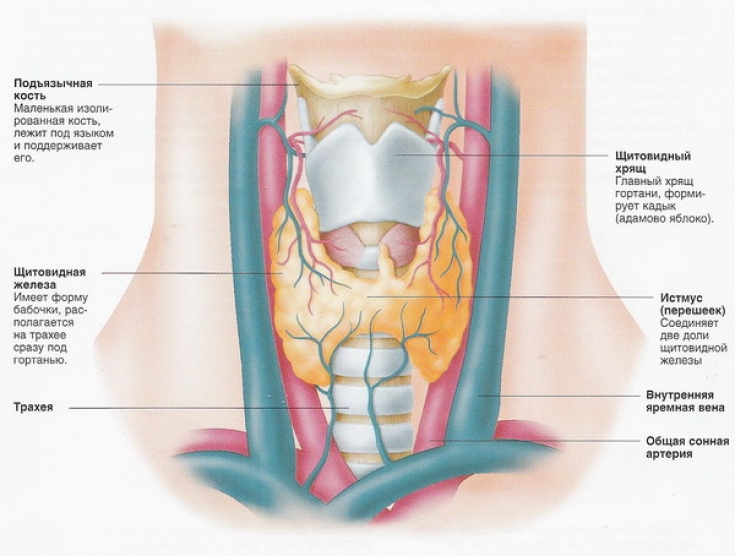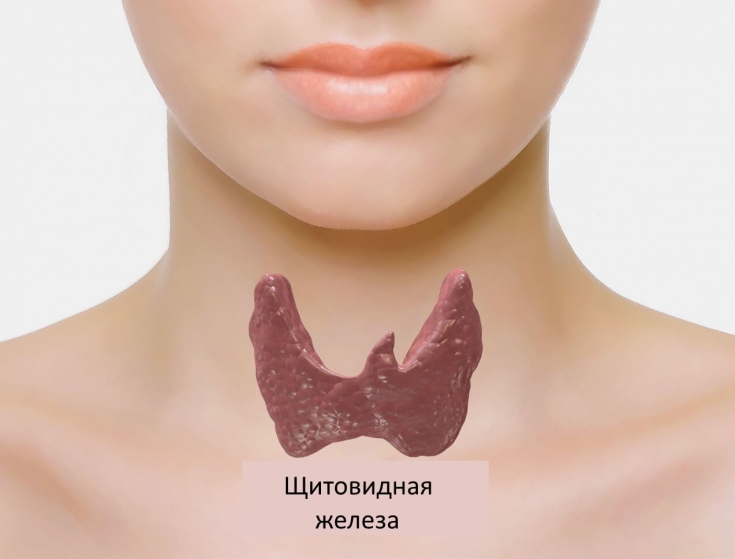Autoimmune diseases of the thyroid gland rank second among the endocrinological pathologies of pregnant women. Hypothyroidism occurs in 0.3-0.5% of pregnant women, subclinical hypothyroidism – in 2-3%, hyperthyroidism occurs in 0.1-0.4% of expectant mothers.
– most common cause of thyroid hormone imbalance. Graves' disease accounts for more than 85% of all cases of hyperthyroidism, while Hashimoto's thyroiditis is the most common cause of hypothyroidism. The estet-portal.com article will help you understand
thyroid disordersin pregnant women. Graves-Basedow's disease as an autoimmune disease in pregnant women
Graves-Basedow disease – autoimmune thyroid disease develops as a result of an attack of thyroid stimulating hormone (TSH) receptors by antibodies that, instead of TSH, stimulate the thyroid gland to produce hormones. Antibodies are not amenable to control and feedback.
Human chorionic gonadotropin (hCG) stimulates the thyroid gland. Gestational hyperthyroidism is more likely to develop in multiple pregnancies, in which hCG levels are higher.

• miscarriage,
• infection,
• preeclampsia,
• preterm birth,
• congestive heart failure,
• placental abruption.
Follow us on Fetal and neonatal complications include:• intrauterine fetal death,
• prematurity,
• hypotrophy,
• fetal tachycardia (heart rate ≥ 160 bpm),
• dropsy.
Hyperthyroidism of the newborn may include:• tachycardia,
• congestive heart failure,
• accelerated ossification of the skeleton,
• height restriction.
Treatment of hyperthyroidism due to autoimmune thyroid disease
Antithyroid drugs (propylthiouracil, methimazole) are the first line treatment for hyperthyroidism in pregnant women. Methimazole at doses up to 20-30 mg/day is safe for breastfeeding mothers and their babies. Propylthiouracil at doses up to 300 mg/day is a second-line agent due to concerns about severe hepatotoxicity.
How to identify Basedow's disease without tests Beta-blockers (eg, atenolol, nadolol, propranolol) are effective in relieving symptoms of hypermetabolic conditions, but may be taken by pregnant women for up to 2 weeks. The use of radioactive iodine is contraindicated during pregnancy.
Serum TSH should be assessed every 4 weeks during the first half of pregnancy and at least once between 26 and 32 weeks of gestation.
Thyroidectomy results in remission in most patients with Graves' disease.Indications for surgical treatment (recommended in the second trimester):
• requires high doses of antithyroid drugs (propylthiouracil > 300mg, methimazole > 20mg);
• fetal hypothyroidism develops at the dose required to treat the mother;
• suspicion of a malignant neoplasm.
Hypothyroidism as an autoimmune disease in pregnant women
Hashimoto's thyroiditis develops as a result of the production of autoantibodies against the thyroid peroxidase enzyme, antibodies to thyroglobulin are detected in 50-70% of patients.
Why autoimmune thyroiditis develops
Consists of three phases:1. hyperthyroid (caused by the destruction of thyrocytes);
2. hypothyroid;
3. euthyroid.
Atrophic chronic thyroiditis develops as a result of blocking of TSH receptor antibodies, clinically manifested by hypothyroidism.
Fetal or neonatal complications of hypothyroidism:• preterm birth;
• stillbirth;
• delayed bone maturation;
• goiter;
• dropsy of the newborn;
• defects in neurological development.
Postpartum thyroiditis – variant of chronic autoimmune Hashimoto's thyroiditis. It is characterized by the presence of antimicrosomal antibodies. Develops in 20-40% of women 1-8 months after birth.
Treatment of hypothyroidism due to autoimmune thyroid disease
Synthetic thyroid hormones (levothyroxine, liothyronine and lyothrix) are used for hypothyroidism. The goal of thyroid hormone treatment is to normalize maternal serum TSH values within the control range (first trimester – 0.1-2.5 mIU/l, second trimester – 0.2-3.0 mIU/l, third trimester &ndash ; 0.3-3.0 mIU / l).
Subclinical hypothyroidism is defined as a condition in which TSH is 2.5 and 10 mIU/L with normal T3 and T4 levels.
All pregnant and breastfeeding women should take 250 mg of iodine daily. Doses up to 500-1100 mg per day should not be exceeded due to the risk of fetal hypothyroidism.

Autoimmune thyroid diseases develop in 5% of pregnant women, some women enter the antenatal period in a state of decompensation of chronic thyroid pathology.
An imbalance of thyroid hormones adversely affects the health of a pregnant woman and leads to serious developmental disorders and intrauterine pathology of the fetus.
Modern recommendations for the treatment of autoimmune thyroid diseases allow correcting the level of thyroid hormones and thus protect the mother and child from metabolic disorders.
You may be interested in the article on our website estet-portal.com in the section "Endocrinology"
Algorithms for the diagnosis and treatment of thyroid pathologies









Add a comment